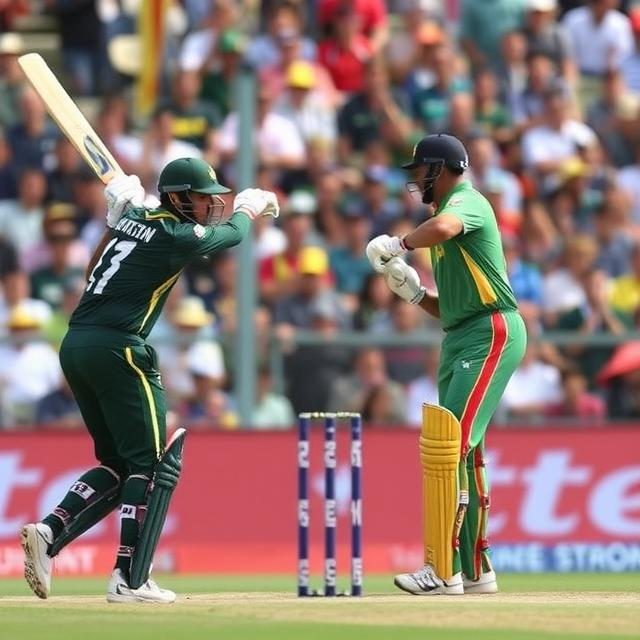CEO of Afghanistan Cricket Board on Pakistan Cricket: A Complex Relationship

CEO of Afghanistan Cricket Board on Pakistan Cricket: A Complex Relationship
The relationship between Afghanistan and Pakistan, particularly in the context of cricket, is a multifaceted one, riddled with geopolitical complexities and historical undercurrents. A recent statement by the CEO of the Afghanistan Cricket Board offers a glimpse into this intricate dynamic, shedding light on the challenges and opportunities facing both nations in the world of cricket.
Click here to delve deeper into the nuances of this relationship and discover how it shapes the cricketing landscape in the region.
The Historical Tapestry: A Shared Past, Contested Present
Afghanistan and Pakistan share a long history, marked by intertwined cultures and a complex relationship. While cricket has often served as a unifying force within both countries, the broader geopolitical realities have sometimes cast a long shadow over the field.
Afghanistan’s cricketing journey has been one of remarkable progress, often overshadowed by the immense challenges inherent in nation-building. Pakistan, on the other hand, possesses a rich cricketing legacy and a passionate fan base. The intricate relationship between these two countries, both in their sporting and political realms, provides a compelling lens through which to understand the evolution of cricket in the region.
The CEO’s perspective, therefore, adds another layer to this dynamic story, offering insights into the challenges faced by Afghanistan in their cricketing aspirations and the complexities of the broader relationship.
Navigating Geopolitical Tensions on the Cricket Field
The CEO’s comments likely touch upon several key issues, including security concerns, logistical hurdles, and the potential impact of political tensions on the cricketing landscape. International cricket, in its very nature, demands cooperation and harmony, but the delicate balance between sporting competition and geopolitical sensitivities can be precarious.
Pakistan, a traditional powerhouse in international cricket, hosts a fervent fanbase and boasts a rich cricketing heritage. The recent performance of Afghan cricket has been inspiring, with the team demonstrating remarkable progress and growth. The CEO’s statement likely addresses the need for fostering a supportive and respectful environment for both nations to excel on the global stage.
Cricket as a Bridge to Understanding: Fostering Peace Through Sport
Cricket, with its universal appeal, can serve as a powerful tool for fostering cross-cultural understanding and bridging divides. It often transcends political boundaries, creating opportunities for interaction and dialogue.
The CEO’s comments likely address the importance of using cricket as a platform to encourage peaceful engagement. This underscores the ability of sport to foster meaningful relationships, promoting mutual respect and understanding beyond the realm of political complexities.
The article will also examine how regional rivalries and political sensitivities might be impacting the relationship between Afghanistan and Pakistan on and off the field, perhaps focusing on how shared cricketing experiences might help mediate these sensitivities.
Afghanistan’s Aspiring Cricketers and International Cooperation
Afghanistan’s journey in international cricket has been remarkable, showcasing resilience and a commitment to achieving success against the backdrop of significant obstacles. The CEO’s insights likely address the challenges faced by Afghan cricketers, both in terms of resources and the need for international support.
Such insights should focus on practical and tangible aspects such as infrastructure development, access to quality coaching, and international collaborations. The importance of international support for developing cricketing nations should be a crucial aspect of the discussion.
The Impact of Border Relations on Cricket
The border relationship between Afghanistan and Pakistan significantly influences the cricketing ecosystem. Travel restrictions, visa policies, and security concerns directly impact the ability of Afghan players to participate in tournaments and training camps. The article will likely delve into how these challenges affect the development of Afghan cricket.
It should analyze the practical challenges that the limited travel between the two countries causes for the Afghan Cricket team and their supporters. How does it impact the team’s training and the overall development of the sport in Afghanistan?
Looking Ahead: Prospects for Future Cooperation
The future of cricket in Afghanistan and its relationship with Pakistan hinges on a commitment to fostering cooperation and understanding. The CEO’s statement likely provides valuable insights into potential avenues for improving relations and creating a more collaborative cricketing environment for both countries.
The article will explore avenues for future cooperation between both countries, examining how cricketing diplomacy could be used to bridge the gap and promote harmony and mutual respect in the region. How can cricket, in its purest form, help build a stronger relationship between these two nations?
By exploring these various perspectives, the article aims to provide a comprehensive understanding of the intricate relationship between Afghanistan and Pakistan, focusing on the critical role of cricket within this complex dynamic.
Conclusion
The statement from the CEO of the Afghanistan Cricket Board offers a valuable opportunity to understand the complexities surrounding the relationship between Afghanistan and Pakistan, particularly as it pertains to cricket. By exploring the multifaceted nature of this connection, we can gain a deeper appreciation for the challenges and opportunities facing both nations on the global stage of cricket. The future prospects of the Afghan cricket team depend, at least in part, on the ability to manage and leverage this complex relationship.
By dissecting the nuances of this relationship, the article seeks to not only inform, but to inspire a greater appreciation for the unifying power of cricket in a region facing considerable geopolitical challenges.